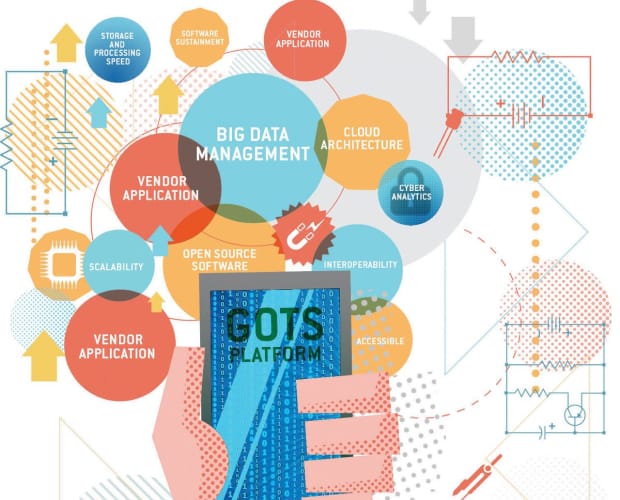MCPA - Level 1: MuleSoft Certified Platform Architect - Level 1

Get ready for your exam by enrolling in our comprehensive training course. This course includes a full set of instructional videos designed to equip you with in-depth knowledge essential for passing the certification exam with flying colors.
$13.74 / $24.99
Introduction
-
1. Topics and Sections3m
-
2. Course Type and Mindset3m
Application Network
-
1. API Terminology15m
-
2. API Terminology Demo5m
-
3. Operating Model11m
-
4. Ownership and Focus6m
-
5. Platform Capabilities11m
-
6. Platform Demo14m
-
7. Platform Automation6m
Foundations
-
1. C4E7m
-
2. Deployment Options10m
-
3. Both MuleSoft-Hosted Control and Runtime Planes7m
-
4. MuleSoft-Hosted Control Plane and Customer-Hosted Runtime Planes6m
-
5. Both Customer-Hosted Control and Runtime Planes5m
-
6. Decision Chart for Choosing Right Deployment Option18m
-
7. Access Management-I12m
-
8. Demo - Access Management-I26m
-
9. Access Management-II12m
-
10. Demo - Access Management-II9m
API Modeling
-
1. Introduction (Section 4)8m
-
2. Fine grained vs Coarse grained APIs17m
-
3. Layered Walk-through of the Solution8m
-
4. Establishing Routines6m
-
5. Designing and Publishing APIs46m
-
6. API Documentation10m
-
7. Demo - API Documentation20m
Non-Functional Requirements of APIs
-
1. Introduction (Section 5)6m
-
2. NFRs For Our Business Process18m
-
3. Some more API Terminologies10m
-
4. Enforcement of API Policies9m
-
5. Managing APIs9m
-
6. Demo: API Manager18m
-
7. Demo: Enforcement of API Policies32m
-
8. Out-of-the box Policies available on Platform26m
-
9. Custom API Policies19m
-
10. Registering API clients13m
-
11. Client ID-based API policies16m
-
12. HTTP Caching API policy13m
-
13. Review Solution from Previous Assignment13m
-
14. Reflection of API Policies in RAML6m
-
15. Anypoint Security Edge9m
Designing Effective APIs
-
1. API Design7m
-
2. Versioning APIs19m
-
3. API Data Models29m
-
4. Backend Systems Abstraction12m
-
5. API Invocation Patterns17m
-
6. HTTP Caching - Detailed9m
-
7. API Retries and Idempotency12m
-
8. Optimistic Concurrency Control9m
Implementing Effective APIs
-
1. API Implementations10m
-
2. CloudHub Technology Architecture11m
-
3. Anypoint VPCs13m
-
4. CloudHub Load Balancers9m
-
5. Object Store7m
-
6. Fault-tolerant API invocations9m
-
7. Using Timeouts7m
-
8. Retrying Failed API10m
-
9. Circuit Breakers22m
-
10. Fallback APIs6m
-
11. Parallel API Invocation2m
-
12. Cached Fallback Results4m
-
13. Static Fallback Results3m
-
14. CQRS and Event Sourcing14m
Event Driven Architecture
-
1. What is EDA?2m
-
2. Benefits of an EDA3m
-
3. Example Architecture2m
-
4. When to use EDA6m
-
5. Event Driven Architecture vs API-led connectivity5m
-
6. Using EDA in API-led connectivity7m
-
7. Anypoint MQ5m
Getting Production Ready
-
1. Development Lifecycle5m
-
2. DevOps8m
-
3. Promoting APIs to Higher Environments7m
-
4. Demo: Promoting APIs in API Manager14m
-
5. Demo: Promoting Mule Apps in Runtime Manager8m
-
6. Understanding Automated Testing5m
-
7. Integration Tests5m
-
8. Unit Tests3m
-
9. Testing Resilience7m
-
10. API Performance - I6m
-
11. API Performance - II7m
-
12. Deprecating and Deleting an API6m
Monitoring and Analytics
-
1. Introduction (Section 10)2m
-
2. Anypoint Visualizer7m
-
3. Usecases for Anypoint Visualizer4m
-
4. Demo: Anypoint Visualizer17m
-
5. Layers & Tags in Anypoint Visualizer5m
-
6. Assigning Visualizer Layers & Tags Using Properties3m
-
7. Anypoint Monitoring6m
-
8. Demo: Anypoint Monitoring19m
-
9. Ways to enable Monitoring4m
-
10. Demo: Ways to enable Monitoring6m
-
11. Anypoint Analytics5m
-
12. Analyzing API Invocations4m
-
13. Demo: Anypoint Analytics11m
-
14. Alerts8m
-
15. Demo: Alerts on API Manager11m
-
16. Demo: Alerts on Runtime Manager9m
-
17. Documentation9m

